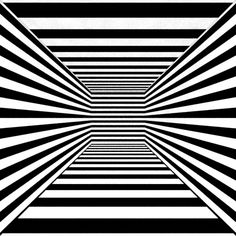|
LITR 4368 Literature of the Future |
Sample answers
for Essay 2:
|
 |
Christa Van Allen
Singularity and Human Empathy
Singularity within the realm of future narratives is defined as a
hypothetical moment in time when artificial intelligence and other technologies
have become so advanced that humanity undergoes a dramatic and irreversible
change. Already, such things are somewhat touched upon in Sci-Fi, but I will
explore a few books, and other story mediums as a full blown discussion on how
such advancements change people socially and mentally. The singularity that at
present appears to coincide with is that of the living robot. A being which is
autonomous, emotional, and perhaps curious. Humanity before the fall as it may
be equated, but at a faster pace than we ourselves took the plunge.
I
first crossed the idea while watching a trailer for PS3 graphics called ‘Kara’,
which I will touch upon more, further in my essay. The trailer startled me and
made me think: If something has become so self-aware, so autonomous that it
seeks the human condition, does humanity have any right to deny them? Caution
would be necessary of course, but it is my understanding that humanity will do
as it always does until a verdict is reached. They will ignore, they will
ridicule, they will fight, and then they will accept change.
Singularities can branch in various directions, making it an easy topic to cover
with when trying to address the alternative future narrative. In The Time
Machine, two separate creatures are revealed to be humanity’s future
descendants. The ones that exemplify the singularity best are the Eloi, small,
childish specimens of human evolution that have become so used to the care of
their basic needs by their subterranean cousins that they are lazy, dumb, and
weak. They are unable to understand the very intelligence which keeps them
alive, and so quite honestly they’re lucky that their farmers are the only
predator they have to worry about. The Morlocks are almost as pitiable as their
food source, for they seem to have retained an almost genetic instinct for
maintaining machinery built far before their time, but none of the societal
intelligence.
In
their version of the singularity, social and economic classes divided in drastic
directions with nothing in terms of mechanical A.I. despite a believable
advancement in the technology of comfort. It was an advancement that may well
have only been a small part of the problem, not the direct problem. Something
like the movie Wall-E, but without the happy ending. An evolution wherein,
technology could not keep up or develop autonomy, but gained biological ground
that until this book I had not considered feasible. They no longer have complex
emotions, very little free thought, and clearly no concept of living for its own
sake and not just surviving by routine. This change arguably removes the human
condition from these possible descendants.
In
contrast to some of the effective examples from the course texts, which have
terrific examples of human reaction to a major tech advancement but no such
viewpoints from the technology side of the equation, is Robbie. A plausible
future robot written by the father of Sci-Fi robotics himself, Isaac Asimov.
Known primarily for his development of the three infallible laws of robotics,
Asimov wrote a book comprised of short stories about humanity’s future with
intelligent, but somewhat less autonomous than humans, robots. ‘Robbie’ is the
first story we read in ‘I, Robot’, that details the bond between a young girl
named Gloria, and her caregiving robot babysitter, Robbie as they are separated
by the girl’s mother with the waning popularity of owning such machines, and
then reunited when an event orchestrated by her father to show Robbie’s value
fails and succeeds simultaneously. Robbie saves Gloria from being crushed in a
factory with speed far out matching any human, and without any thought to his
own safety, reinforcing what the girl’s father says earlier in the story, "He
just can't help being faithful and loving and kind. He's a machine—made so.
That's more than you can say for humans". It portrays the original, kind
artificial intelligence and the nicer, but still realistic reactions of humanity
after an advancement in A.I.
Finally, the example that inspired me. Without giving too much about the trailer
away, Kara is “…a third generation ax400 android,” she can clean the house, mind
the kids, act as a personal secretary, and is capable of so much more. She does
not need to be fed or recharged, she comes equipped with a quantic battery that
makes her autonomous for 173 years. When she is initialized in the factory she
believes she is alive, and more than anything else, she wants to live. But she
is the official point of uncertainty, she is 100 percent free thinking, she can
feel emotions, and can theoretically choose to be whatever she wants, but she is
also still merchandise. The question that is posed from her dramatic awakening
is: Does she have the right to be human? As of 2015, the graphics trailer she
was part of was given a fully released game where she is a main character, so I
suppose the question will be answered in some context. But how humanity will
react to it, how we could react to it in our real life, has yet to be seen.
Human sentience in human-like robots, and the desire to achieve the human
condition, is a conundrum that demands answering.
In
conclusion, the possibilities and discussions slow and speed progression at
varying intervals, but the ideas are endlessly fascinating. The singularity
could be apocalyptic, evolutionary, or any number of alternate results, but in
all likelihood, humanity has been taking proper note of what would make android
technology dangerous, and will appropriately avoid it. If a system like Kara
wakes up humanity will have to face the fact that something which is in nearly
all ways already human, must be treated as such.




